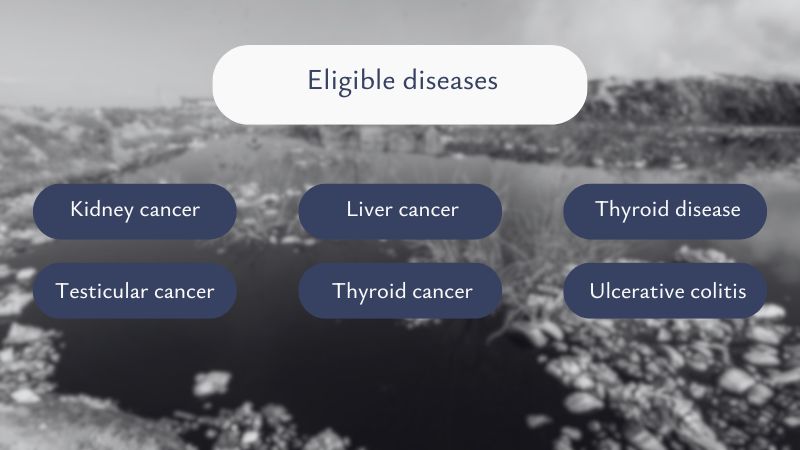Once an individual has been exposed to a toxic chemical, it can impact virtually every system in the body, resulting in both short-term and chronic health consequences. The most common route by which a chemical may enter the body is through inhalation; other pathways are by means of ingestion and directly through the skin.
At many military bases & installations owned and/or used by the United States Armed Forces, the contamination is so severe that they have been designated Superfund sites by the U.S. Environmental Protection Agency, meaning that they are among the most hazardous areas in the country that need immediate and intense cleanup.
According to the U.S. Department of Defense, there are over 600 military sites that are Superfund sites. The hazardous chemicals which the EPA considers for superfund sites include:
- per-and polyfluorinated substances
- acetone
- benzene
- 2-butanone
- carbon tetrachloride
- trichloroethylene (TCE)
- perchloroethylene (PCE)
- chlordane
- 1,1- dichloroethane
- 1,2- dichloroethane
- methylene chloride
- polychlorinated biphenyl (PCB)
- polycyclic aromatic hydrocarbons (PAHs)
- tetrachloroethylene
- toluene
- trichloroethylene
- vinyl chloride
- halogenated hydrocarbons
- trihalomethanes
- xylene
The toxicity of these substances is undeniable, and their persistence and accumulation within the body should be cause for significant concern. These chemicals also accumulate and persist in our environment, with the ability for long-range transport far from the emission points.
Military bases and installations that have records of toxic exposure issues
Many toxic substances such as chlorinated solvents, industrial chemicals, petroleum hydrocarbons, and metals are present in the soil at disused military bases and installations at levels that exceed the Environmental Protection Agency’s health guidelines.
The natural and man-made substances that are found on Superfund sites are designated by the Comprehensive Environmental Response, Compensation, and Liability Information System (CERCLIS) as the following:
- cause serious, irreversible, or incapacitating illnesses in exposed individuals;
- pose a threat to the environment when improperly treated, stored, transported, or disposed of.
There are numerous active, closed, and formerly used military installations across the country that are listed as Superfund sites. Each Superfund site varies in the type and the level of contaminants found, so potential health effects could vary depending on the base when you were stationed there, and the length of time spent on the base. The U.S. EPA’s Superfund website provides a search feature to find Superfund sites near you if you are a veteran exposed to dangerous or toxic chemicals while serving in the military.
The rate of misdiagnosis is very high among the victims of toxic exposure
According to estimates from the World Health Organization and the International Agency for Research on Cancer, exposure to both manufactured chemicals and natural toxins is responsible for between 7% and 19% of human cancers.
If your doctor suspects you might have a malignant disease, he or she will ask you about any symptoms you are having, such as unexplained weight loss, fatigue, pain, numbness, or weakness, and how long you have had them. You might also be asked about possible risk factors, including exposure to hazardous chemicals.
In order to give your claim the best chance at success, there are certain requirements that must be met, including being able to prove that exposure to toxic chemicals or other hazardous materials during military service has caused your disease or condition to develop. Anyone with a history of chemical exposure during military service should take special note of the symptoms and immediately seek medical attention. An accurate and early diagnosis can increase the chances for successful treatment but also gives you the right to be entitled to compensation.


